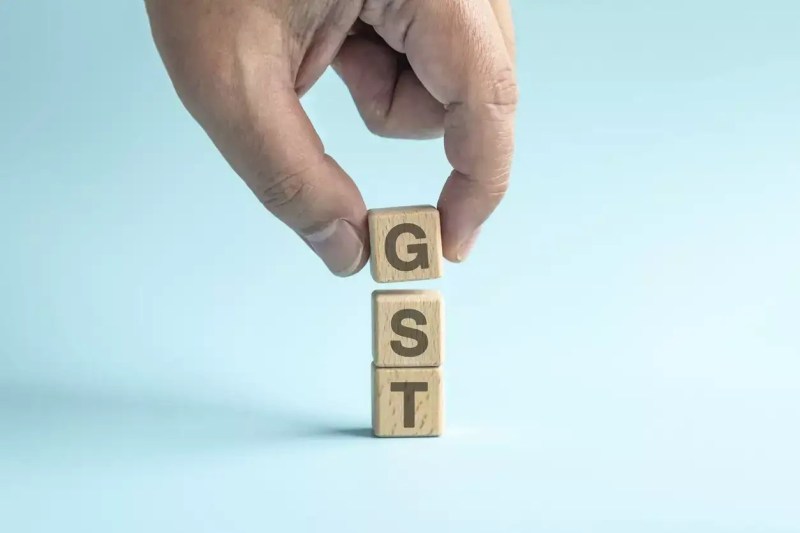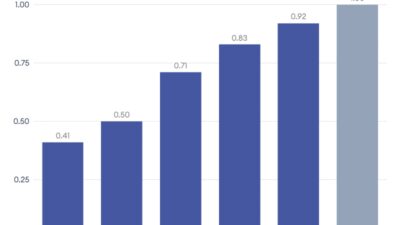Gst In Life Insurance Premium – Before implementing a life insurance policy, life insurance premiums may receive service tax, including basic service tax, Swachh Bharat Cess and Krishi Kalyan Cess.
Now that GST is implemented, you must pay GST in accordance with your life insurance policy.
Gst In Life Insurance Premium

After the implementation of GST in India, taxes on life insurance schemes increased from 15% to 18%, resulting in higher premiums for policyholders.
Insurance Gst: Will Insurance Companies Pass On The Benefit Of Lower Gst To Consumers?
Despite its initial impact on consumers, the implementation of GST has other positive effects on the life insurance sector.
Additionally, standardization of service tax aspects of insurance prices allows consumers to focus on other key factors while choosing a life insurance plan.
When it comes to purchasing life insurance in India, it is essential to understand the impact of GST on different products.
Therefore, it is crucial for consumers to understand the GST rates applicable to different life insurance products before making a decision.
Gom On Gst On Health, Life Insurance Premium To Meet On Oct 19
Take a call from ExpertPlease enable JavaScript in your browser to complete this form. Name *Mobile phone number * querysubmit
While implementing GST in India’s life insurance scheme may result in higher premium amounts, there are several deductions that can help you save on income tax.
These deductions apply not only to premium amounts, but also to the GST paid by these premiums.
The two most popular deductions for saving on life insurance premiums are Section 80C and Section 80d of the Income Tax Act of 1961.
Gadkari Urges For Removal Of Gst On Life, Medical Insurance
Under Section 80C, you can deduct a deduction of up to Rs. Your overall premium (including GST) applies to their overall premium.
If you choose a medical rider as well as a life insurance policy, you can also benefit from the premiums in Section 80D.
By leveraging these deductions in ITR applications, policyholders can significantly reduce their income tax liability while ensuring the future through a life insurance policy.
In short, while the implementation of GST of the Indian Life Insurance Plan may result in higher premium amounts for insurers, it has also brought some positive changes to the industry. It encourages competition among insurers, leading to lower prices and standardization in insurance price service tax. Additionally, with the correct deductions, policyholders can save income tax on their premium amount and GST applicable to them.
Gst Revenue Of More Than Rs. 18000 Crores From Healthcare And Life Insurance
It is important to note that all businesses operating in India have annual turnover of more than Rs. GST registration is also required in the special category, which also includes insurance companies and policy holders who choose a life insurance plan.
Additionally, you need any kind of guidance related to online GST registration, please feel free to contact us at 8881-069-069.
Previous corporate taxes for companies registered in India in the UK made significant changes on April 23 in the monthly highest record for Goods and Services Tax (GST) in many countries including India, including India. GST aims to simplify the tax structure and ensure a unified tax system for different sectors. The insurance industry is such a sector affected by the commercial tax. In this blog, we will dig into GST based on insurance premiums, their impact, and their impact on policyholders and insurers.

Life and non-life insurance is an essential financial product that provides protection for individuals and businesses with various risks. The GST regime divides insurance into two broad categories:
Gst Rate Reduce: Good News! Preparations To Reduce Gst Rate On Health And Life Insurance Premium
The GST rate for non-living insurance premiums depends on the type of policy. Here are the current GST tax rates for non-living insurance premiums in India:
Understanding the GST rates on premiums is crucial for policyholders and insurance companies. The GST regime brings unity and transparency in the taxation of insurance products. Policyholders need to understand the GST component while budgeting insurance expenses, which increases the overall premium amount. On the other hand, insurance companies must comply with GST regulations and ensure proper collection and remittance of GST.
Policyholders and potential buyers are advised to consult with insurance professionals or tax experts to get a thorough understanding of what the insurance premium means. This will allow them to make informed decisions and choose the right coverage based on their needs and budget.
Remember, understanding GST and its impact on insurance can enable you to make informed financial decisions while protecting your interests.
Lic Slapped With Staggering Rs.230 Crore Penalties By Tamil Nadu And Telangana Gst Authorities
Life insurance premiums are only suitable for the risk of death and are exempt from GST. Therefore, pure life insurance policies do not impose GST.
The GST rate for Medicare premiums is currently 18%. This rate applies to personal health insurance policies, family floating policies and group health insurance policies.
Auto insurance premiums, including two-wheeler and four-wheeler insurance, attracted 18% of GST. This rate applies to third-party liability insurance and comprehensive insurance policies.
Real estate insurance premiums, including fire insurance, home insurance and commercial property insurance, shall be subject to an 18% GST.
Gst On Lic Premium: Gst Rate For Lic Policies & Gst Exemptions
Travel insurance policies that provide coverage for domestic and international travel also fall within 18% of the GST rate.
Yes, the insurance company includes the applicable GST rate in the amount of premiums given to policyholders. GST components are added to the overall premium cost.
The GST rate of premiums increases the overall cost of policyholders’ insurance coverage. It is important for individuals and businesses to consider the GST component when budgeting insurance expenses.
No, policy holders do not have to pay GST separately. The GST amount is included in the premiums collected by the insurance company.
How To Get Gst Exemption In Nri’s Life Insurance Premium
Insurance companies need to ensure compliance with GST regulations, which include charging the appropriate GST amount from policyholders and remitting it to the government. They must accurately calculate the GST rates applicable to different strategies and keep the correct records, file GST returns and audits to ensure compliance with GST specifications. On June 26, 2024, notice number issued by the Central Committee of the Central Committee (CBIC) was 214/8/2024-2024-GST. This circular explains how to treat life insurance for GST purposes. It also addresses a reversal of the input tax credit (ITC) for a portion of the life insurance premium that is not included in the taxable value.
The circular states that under Article 32(4) of the CGST Rules, the unincluded portion of life insurance premiums is not considered a tax-exempt or non-taxable supply. Therefore, businesses do not need to reverse ITC on this part of the premium.
The definition of “life insurance business” includes any policy with investment and insurance components. The premiums for allocated investments or savings are excluded from taxable value. At the same time, all insurance premiums are used for pure life insurance coverage.

Rule 32(4) provides a method to determine the taxable value of life insurance services. It allows the exclusion of premiums used to invest or save from the total premium when calculating taxable value.
Are You Aware That Input Tax Incurred On Certain Expenses Is Not Claimable
The circular confirmed that businesses do not need to reverse ITC in life insurance premiums not included in taxable value. Therefore, these amounts are not considered tax-exempt or non-tax supply.
This clarification simplifies the compliance process for life insurance companies. It ensures uniformity when applying the GST laws in different regions.
Businesses who purchase life insurance or other purposes for their employees can rest assured that they can claim ITC without worrying about a reversal of the premium investment portion.
The circular provides clear guidance, thereby reducing ambiguity and potential disputes in ITC claims related to life insurance.
Times Now On X: “nitin Gadkari Writes To Union Finance Minister Nirmala Sitharaman Requesting Withdrawal Of 18% Gst On Life, Medical Insurance Premiums. What Are Your Thoughts On This? Tell Us In
First, evaluate your current life insurance policy to understand the premium breakdown into risk coverage and investment components. Second, make sure your accounting practice accurately reflects the handling of these premiums based on new clarifications.
Incorporate the guidelines in this circular into your GST compliance process. Additionally, communicate these changes to your financial and accounting teams to ensure the ongoing application.
Interact with your tax advisor to confirm that your ITC claims are consistent with the latest circular. Also, if you have complex insurance arrangements or involve a large amount of premiums, seek professional advice.

Circular No. 214/8/2024-GST provides much-needed clarity for life insurance under GST. CBIC simplifies compliance with businesses by confirming that the untaxable premiums need not be reversed by ITC. So make sure your practice is updated to reflect these changes and consult your tax advisor for a seamless transition.
Gst Meet On Health, Life Insurance Premium On October 19
This article is only a knowledge sharing initiative, based on applicable relevant regulations and information present in preparation. In any case, the authors & co.OR or any other person shall be liable for any direct and indirect liability for this article, or for any unintentional omission, update, etc. After the GST system was established in 2017, all aspects of the discussion continue. As of now, this is so that every aspect of India’s economy seems to be relevant














